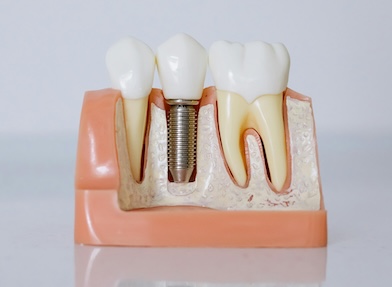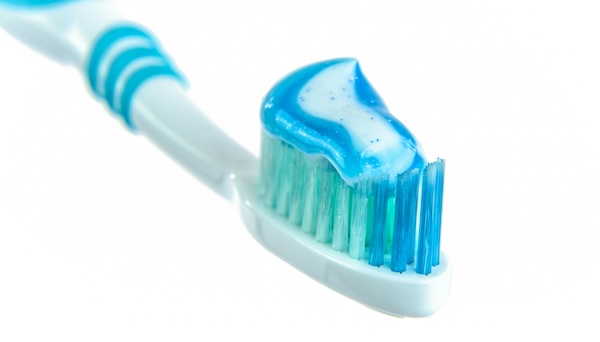Ensuring Dental Implant Success - How to Avoid Implant Failure

Dental implants, whether you get one implant or a full mouth of implants, are an investment in your smile. They are a durable replacement option for your lost natural teeth. Once the process is complete, they effortlessly offer you the look and feel of natural teeth. Some may be hesitant to consider dental implants, with the concern of failure being something they may have read about or heard about from family and friends. The good news is that dental implants have a reliable and high success rate, particularly if patients follow the guidance of their dental professionals.
Just what steps can you take to help ensure the success of your dental implants? What can you do to help avoid the failure of your implants? The good news is that there are things that you can do in order to help promote a successful implant procedure. There are also steps that you can take to help keep your implants and gums stable once they are in place.
Understanding the how of dental implants
While it can be an intensive process for some patients, the implant process is relatively simple. Dental implants can be used to replace a single tooth, multiple teeth, a whole mouth of new teeth, or can also be used to support dental bridges and dentures.
Your dental professional will surgically place the implant into your jawbone. The implants are made from a biocompatible material, which lowers the potential for rejection as you heal. Titanium is the material most often used for dental implants.
Once the implant is in place, your bone will fuse with the implant in a process known as ossification. Your gums will heal around the implant, and it will become a permanent part of your new smile. When the healing process is complete, an abutment and crown will be secured on the implant. The finished result will be the fresh, new smile that you have been dreaming of.
Issues with bone or gum loss
Because part of any successful dental implant procedure is your bone and gums healing around the new implant, it’s important to address any issues with bone or gum loss. Where there isn’t sufficient gum tissue or you’ve suffered from bone loss, it’s possible that your new implant won’t be able to fuse with the bone. There are a number of procedures that may help to overcome these potential issues and help to encourage the healing process. This may include bone grafting, gum contouring, and gum tissue grafting. Note that these additional procedures may extend the amount of time it takes to get your implants in place but they are an important part of helping to promote the successful healing when you get your dental implants.
Considering any existing health concerns

There are several things that your dental professional will discuss with you before you undergo the implant procedure. This will include any health concerns that you’re currently living with. Gum disease, diabetes, and other autoimmune disorders that are poorly controlled offer the potential for the implant not correctly fusing with your jawbone. Your dentist will work with you to determine whether any of your other health concerns can potentially compromise the success of your dental implants.
It's important to note that underlying health concerns don’t necessarily exclude you from being eligible for the procedure. But it is important to make your dentist aware of them so that any necessary steps can be taken to protect your gum, implants, and your whole body health.
As an example, if you are diabetic it’s important that your blood sugar levels are in a good range. High levels may prolong the healing process and also leave you vulnerable to an infection. This may also result in the implant failing.
Post-procedure: What to Avoid
Be sure to always follow the instructions that you are provided after your procedure. Sticking to these instructions will help to promote healing and recovery. In addition, there are things that you can to do during the healing phase.
Keep up with your post-procedure appointments. If everything appears to be healing well, it can be tempting to skip some of your post-procedure appointments. Avoid this temptation and go to each of your appointments. The appointments offer your dental professional the chance to make sure that your implants are fusing well and that your gums are healing correctly. Your dentist will also be able to spot any troublesome areas that may offer the potential for an infection.
Avoid clenching your jaw and grinding your teeth. Clenching your jaw and teeth grinding can place extreme pressure on your healing implant. This can make it challenging for the implant to fuse with the bone and it may lead to the implant loosening over time. If you grind your teeth at night, a condition known as bruxism, you should mention this to your dental professional. You may need to use a night guard in your sleep to help offer protection for your implants and your new smile.

Keep up daily oral care routines. Even with a full mouth of dental implants, it’s important that you brush and floss at least twice a day. You should also use an alcohol-free mouthwash after brushing and flossing. These important oral hygiene steps will go a long way toward protecting the health of your gums and of course, help to keep your implants in good condition.
Be aware of your diet. There’s no doubt that your dietary habits play a role in the long-term health of your teeth and gums. The same holds true for the health of dental implants and the crowns that are set atop them. Try to avoid eating crunchy and hard foods that can potentially damage the crown. This includes hard candies and even chewing on ice.
What is Peri-implantitis?
Peri-implantitis is something to be aware of during the healing process. It is an infection that can develop around the implant as a result of poor hygiene after surgery. Bacteria can form on the implant and lead to an infection in the gums. This, in turn, can potentially result in bone loss and the failure of the implant. Patients who have diabetes or smoke are at a higher risk of developing this infection.
Keeping up with your oral hygiene routine and keeping your dentist aware of any discomfort you’re experience or redness that you’re seeing can help you to stay on top of any potential for infection.
Don’t forget your medications

It can be easy to forget to mention any medications that you’re taking. But, it’s important that your dentist is aware of which medications you’re currently taking and take routinely. Even medications that you take for heartburn and indigestion or over-the-counter supplements may have an impact on how your implant heals.
Certainly, your dentist won’t suggest that you stop taking important medications. There are options and treatment plants, however, that can help to reduce the potential for complications during and after your dental implant procedure.
Your dental implants can help to restore your smile in a way that looks completely natural. Keep smiling brightly and follow the suggested steps that can help to promote the success of your implant procedure.



